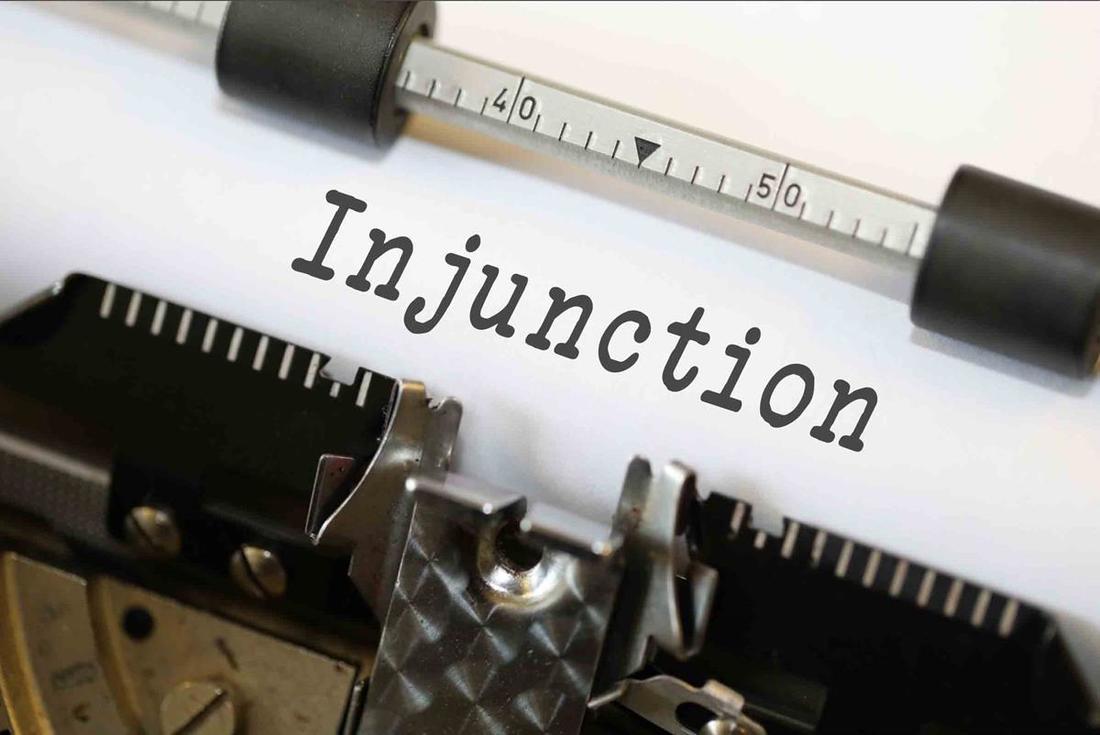29 November 2024
What is an Injunction?

Understanding Injunctions: Types, Costs and the Process of Obtaining One
An injunction is a powerful legal tool issued by a court that orders a company or individual to cease an ongoing action, perform a specific action or refrain from future actions. This court order can have significant implications for those involved and breaching an injunction can result in being held in “contempt of court” with serious consequences, including being sent to prison.
Common Uses of Injunctions
Injunctions serve various purposes across several different contexts:
- Media and Privacy: Preventing newspapers from publishing certain stories (including super-injunctions that prohibit reporting on the injunction itself).
- Neighbourhood Disputes: Stopping nuisances like excessive noise or harmful fumes coming from a neighbour’s boiler.
- Commercial Conflicts: Protecting intellectual property rights or preventing unfair competition.
- Property and Construction: Halting unauthorised building demolitions or alterations.
- Contract Enforcement: Compelling parties to fulfill their contractual obligations.
Types of Injunctions in the UK
Prohibitory Injunctions
Prevent someone from doing something, such as using copyrighted material or engaging in anti-competitive practices.
Mandatory Injunctions
Require someone to take a specific action, like delivering goods as per a contract.
Interim Injunctions
Granted before or during court proceedings, an interim injunction maintains the status quo until a final decision is made by the judge. These are particularly useful in urgent cases where waiting for a trial would cause irreversible harm.
Final (Permanent) Injunctions
Issued after a trial or by consent, a permanent injunction provides a long-term solution to the dispute.
Specialised Injunctions
- Search Orders: Allows the applicant to search premises for evidence preservation.
- Freezing Orders: Prevents a party from disposing of its assets or dealing with them.
- Information Orders: Compel the disclosure of specific information.
Legal Framework for Injunctions in the UK
Relevant Laws & Courts
- Senior Courts Act 1981: Provides statutory authority for granting injunctions.
- Civil Procedure Rules (CPR): Sets out the process for making an injunction application.
- High Court: Handles complex injunction cases, particularly those involving high-value disputes or urgent matters.
- Court of Appeal: Hears challenges to injunctions granted by lower courts.
- Supreme Court: Deals with injunction-related appeals of national importance.
How Much Does an Injunction Cost in the UK?
The cost of obtaining an injunction in the UK can be high in many cases and vary significantly based on several factors:
- Court Fees: As of 2024, the court fee for filing an injunction application is typically around £500.
- Legal Representation: Solicitor fees range from £1,000 to £3,000 or even more, depending on the case complexity.
- Barrister Fees: If required, these can add substantial costs, often starting from £1,500 per day.
- Emergency Applications: Urgent injunctions may incur additional costs due to out-of-hours work.
- Duration and Complexity: Long running or complex legal cases will naturally incur higher legal fees.
Important Note: If you lose the case, you may be liable for the other party’s legal costs as well.
How to Get an Injunction Against Someone
- Assess Your Case: Determine if you have a valid claim and if an injunction is the appropriate remedy.
- Gather Evidence: Collect all relevant documents, correspondence and witness statements to support your case.
- Seek Legal Advice: Consult with a solicitor specialising in the relevant area of law. They can assess the strength of your case and advise on the best course of action.
- Prepare the Application: Your solicitor will draft the necessary court documents, including the application form and supporting witness statement.
- File the Application: Submit the completed forms to the appropriate court, along with the required fee.
- Serve the Documents: Ensure the other party is properly notified of the proceedings.
- Attend the Hearing: Present your case before a judge, who will decide whether to grant the injunction.
Considerations Before Applying for an Injunction
- Valid Claim: You must demonstrate that your legal rights have been or are likely to be infringed.
- Inadequacy of Damages: The court will only grant an injunction if financial compensation alone would not sufficiently remedy the situation.
- Urgency: In some cases, you may need to demonstrate why immediate action is necessary.
- Balance of Convenience: The court will consider the potential harm to both parties when deciding whether to grant an injunction.
- Article 8 (ECHR) – Right to Privacy: Used in cases where an injunction protects an individual’s private life.
- Article 10 (ECHR) – Freedom of Expression: Balances privacy rights with media freedoms in high-profile injunction cases.
Conclusion
Injunctions are powerful legal tools that can provide swift and effective remedies in various situations. However, they come with significant costs and legal complexities. Before pursuing an injunction, it’s crucial to carefully consider your options and seek professional legal advice, from experienced solicitors, to ensure it’s the most appropriate course of action for your specific circumstances.
Notes
For more information about claims and remedies, click here.
